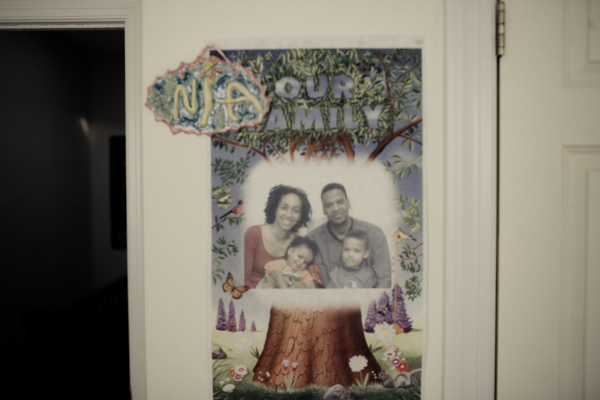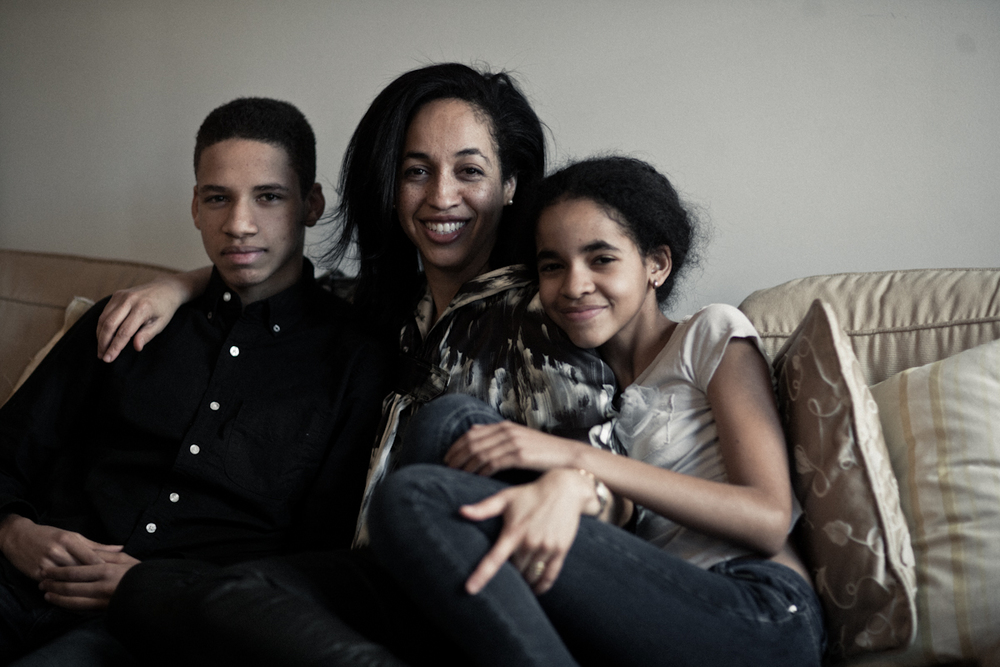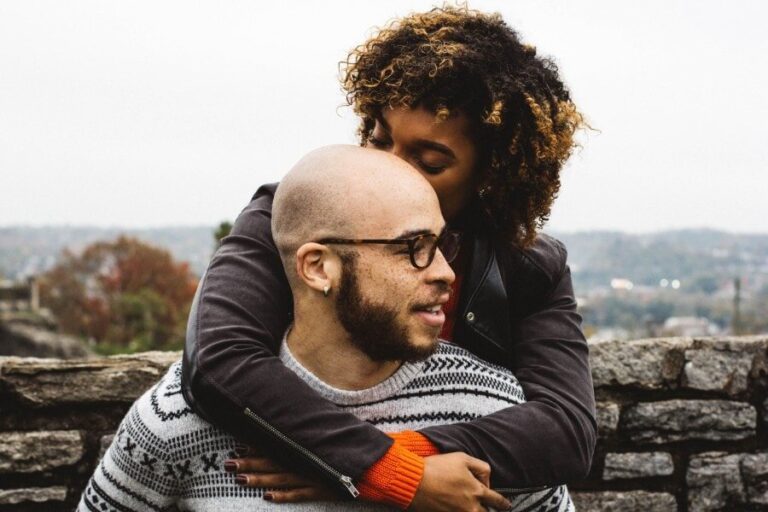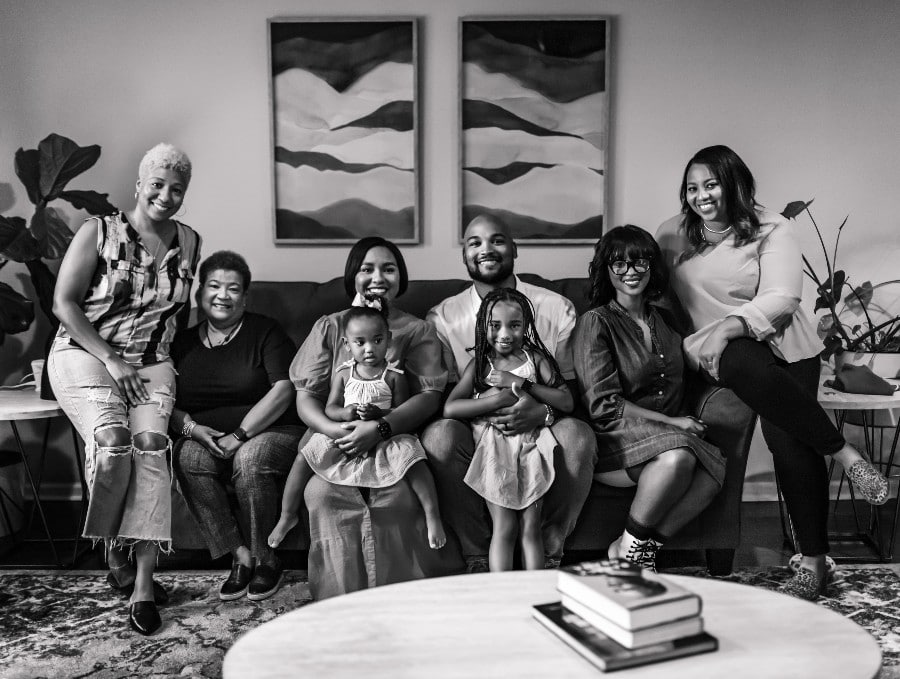Geraldine Moriba, a five-time Emmy Award-winning producer and CNN Worldwide’s vice president of diversity and inclusion, has made a name for herself following the most important stories of our day wherever they take her. But when an unexpected and rare sarcoma cancer diagnosis gave her only six months to live when she was 38, Moriba decided she wanted to stay put and spend what could be her last moments with her husband, anesthesiologist Warner Meadows, and their two children Warner and Nia, now 17 and 13 respectively.
But there was a glimmer of hope some 1,700 miles away: MD Anderson Cancer Center in Houston, Texas. Moriba initially balked at the idea of leaving her children behind, but eventually spent nine months receiving treatment at the center. Now cancer free for more than a decade, Moriba tells mater mea in her own words how she handled being separated from her loved ones.
I didn’t know that my husband had been speaking to friends of ours: a married physician and his wife [who] is a biologist. The three of them found this hospital, and without my knowledge, sent my slides down there for testing because they knew I would say I’m not leaving my children. They set up an appointment and bought the plane ticket.
My husband’s aunt, Aunt Erma, agreed to go with me for that first consultation. I’ve always had really strong women in my life. [When] we went down there, I remember saying to Aunt Erma and to my husband, “If I go there and it seems like the better treatment, how can I leave my family?” They said to me, “If you go there, and you survive, then you’ll come back to your family. We’ll be waiting for you.”

[Aunt Erma] told me that I couldn’t feel sorry for myself, that I needed to hold on and do whatever it took. As soon as I arrived, I immediately knew that the treatment options were going to be different; it was clear that it was the better health option. [But] they said that I would not be allowed to be a patient there if I didn’t have a 24-hour caregiver with me.
Now, I live in New York. This is in Texas. I sent an email blast out to family and friends, because I couldn’t imagine spending the next indefinite number of months in Texas with someone I just hired to stay with me. [I] decided depending on what kind of support I could get, this would help me make my decision.
Within a day—and I’m not exaggerating—I had a schedule for the next several months. Some people came for a whole weekend, some people came for one or two weeks. I had coworkers who took vacation time and came down. I had relatives I hadn’t seen since I was a child who came. Childhood friends. I was never alone. In fact, the list of people who wanted to come and stay with me was so long that when that initial nine-month period was over, and I could come back to New York, there were people who didn’t get a chance to come. [They] teased me afterwards and said they didn’t get to do their rotation.
I was never alone, not for a day, not for a moment. And I needed it. It worked out perfectly: Right when somebody would come and see how debilitating cancer treatment can be, and it would start taking a toll on them emotionally and physically, it’d be time for them to go. Somebody else would come in fresh, and there’d be all this energy. I had this constant source of uplifting love.
Any time somebody asked what they could do, I said, “Make me laugh.” So I had friends who sent funny pictures and comedy DVDs. I had one friend who texted me a joke every week. [Laughs] Most of them weren’t funny, but I love him for it. All things considered, it was a positive experience. I have a whole family and community of friends in Texas, who have become lifelong friends. In fact, a couple of them have become my children’s godparents.
My kids came when they had breaks [from school], either with my mother or my husband. The first visit when they came down, I’d started chemo, and I knew I was going to lose my hair. I had dreadlocks at that point, down to my bottom. So I went wig shopping with my kids, and I let them each pick a wig for me.
My son picked the biggest Afro you’ve ever seen, it was like Angela Davis. My daughter picked this wig that looked like Cher; it was just this long, straight black hair. I promised them that the next time they saw me, that I would wear both wigs. And then I let them cut all of my locks off—they cut [them] down to little teeny-weeny stubs. My concern was them coming every few weeks and being traumatized each time they saw me. I wanted them emotionally prepared to see me without hair.
So I let them remove all of the dreadlocks themselves, and the next time they came, I was bald. They thought it was hilarious. They’d rub my head and we wore wigs together. I had a bunch of wigs by that point and I wore whatever they told me to wear. They’d put on the wigs together and we’d go out. I tried to make this period of our lives seem as normal and fun as possible.
Read our interview with Geraldine Moriba to learn more about her motherhood and career journey.


















